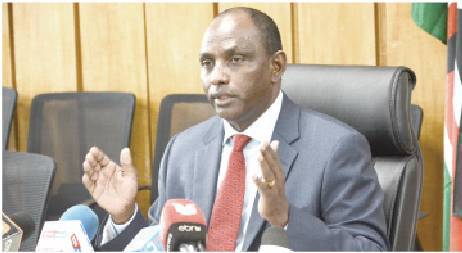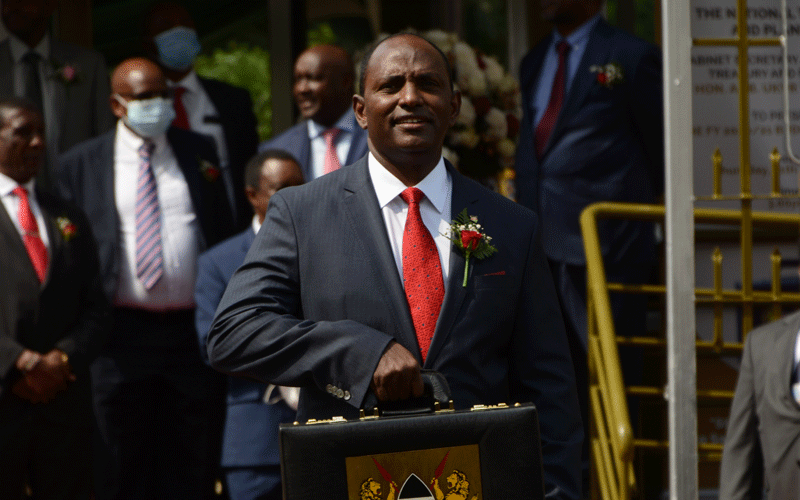Budget: Treasury told to embrace fiscal discipline

Kenya must maintain prudent fiscal discipline and accountability of public finances to enable funding of the 2022/23 budget set to surpass Sh3 trillion as the country shoulders the burden of elections and ongoing Ukraine-Russia crisis.
Ernst & Young (EY) is a professional services firm said increased government allocation to legacy projects, loan repayments, and recurrent expenditures will leave little headroom for borrowing as it approaches debt ceiling, forcing more aggressive tax policies to bridge the gap.
“Election could cause a slowdown in foreign direct investments to Kenya. The Russia-Ukraine war has disrupted the supply chain of key commodities and fuel prices have also been negatively impacted,” EY stated in its 2022/23 pre-budget expectations.
Tax collection
It noted that these expectations will stretch the 2022/2023 budget beyond the current financial year’s numbers, dampening the economic picture, especially in matters of tax collection.
National Treasury Cabinet Secretary Ukur Yatani will next Thursday present about Sh3.3 trillion budget which will be implemented by the next administration.
The national debt which stood at Sh4.05 trillion in the beginning of Uhuru’s term in 2013 surged to the current Sh8.2 trillion, about 50 per cent debt increment that the next administration will battle repaying.
In the last 10 years, Uhuru’s current administration has spent cumulative Sh23.2 trillion with 62.5 per cent (Sh14.5tr) going to recurrent expenditure, 23.7 per cent (Sh5.5tr) on development, and about 13.8 percent (Sh3.2tr) to the county governments. Recurrent expenditure includes salaries, debt repayment, operations, bills and maintenance and others.
The huge spending on debt servicing amid slim fiscal space means that the government will have to either reduce expenditure or increase revenue collection.
The latter has been commonly used through austerity measures and new taxes to keep the government a float. Parliament Budget Office (PBO), estimates the total debt service to reach Sh1.36 trillion by the end of 2022/2023 financial year.
Data from the Controller of Budget (CoB) shows that the recurrent expenditures this financial year is 68 per cent of the total budget, up from 64 per cent from the 2020/2021 financial year.
“This financial year, recurrent expenditure comprised of recurrent ministerial expenditure of Sh598.03 billion compared to Sh550.17 billion recorded in a similar period of 2020/21 and consolidated funds at Sh462.85 billion, compared to Sh394.45 billion recorded in a similar period of 2020/21,” CoB report noted.
In 2021, the government used Sh360.1 billion for domestic debt service, representing 62.2 per cent of total debt services while Sh218.7 billion, 37.8 per cent, went to external debt services, trimming the available resources for critical development expenditure.
Five years ago, Kenyans were paying 55 per cent of the budget to sustain the government.
However, the tax burden that comes with the year-on-year expensive budget is likely to cripple economic recovery as the government devises ways of netting extra revenues to service its high-cost loans.
Negative impact
“Although Treasury has always reacted through a hike in tax, in the long run, this will have a negative impact on the economy. Persistent tax hikes can discourage investment, saving and innovation thus hurting the economy,” said Francis Kamau, a tax partner at EY firm.














